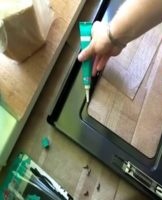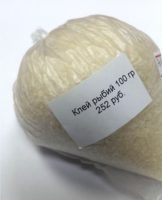Composition and properties of Oscar glue for fiberglass, instructions for use
The use of Oscar dispersion glue for fiberglass is important for finishing interior decoration in the interior. With the help of the solution, it is possible to quickly carry out finishing work and reliably fix the glass wallpaper on any surface.
Description and function of Oscar glue for glass wallpaper
Oscar brand glue is a completely ready-to-use composition that does not require additional dilution with liquid. The substance can be applied to almost any type of surface, including concrete, drywall, wood, brick. Dispersion adhesive is suitable for working with glass wallpaper, vinyl and heavy types of wallpaper based on textile fibers. In this case, the solution is always applied to the wall, and not to the wallpaper.
Advantages and disadvantages
Oscar brand products have a number of comparative advantages that explain their widespread adoption. The main positive features are:
- After drying, the solution does not leave streaks and stains, forming a transparent film with an elastic structure.
- The composition is economical, and the consumption rate does not exceed 1 liter per 4.5-5 squares.
- Thanks to its versatility, it is possible to use Oscar glue for gluing wallpaper in residential premises and in any public institutions without restrictions.
- The high degree of adhesion ensures a strong adhesion to the surface without the risk of displacement of the fiberglass from its original position.
- The substance is resistant to the formation of fungus and mold, does not contain toxic components and is absolutely safe for humans and the environment.
- Due to the long storage period, the composition does not lose its characteristics within 3 years. It is also allowed to store the glue at temperatures up to -40 degrees for a month, or to carry out no more than 5 freeze-thaw cycles.
Composition and properties
Oscar is a versatile acrylic adhesive produced using patented European technology. The composition contains special antiseptic additives that prevent the formation of mold under the fiberglass. The basis of the liquid solution is a latex emulsion of dispersed polymer particles. There is also a pigmented version called Oscar Pigment with a special pigment in the composition, which helps to control the uniformity of the application of the substance.
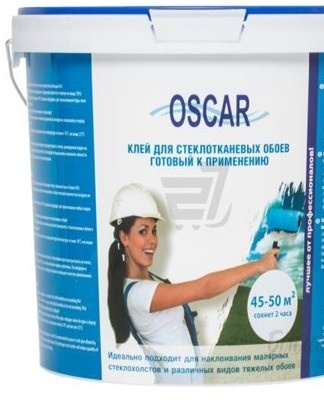
Manual
To properly glue the glass wallpaper with the "Oscar" substance, you need to follow a simple step-by-step instruction. By following the steps consistently, you can avoid common mistakes and achieve a high-quality result.
Preparing the walls
The finishing process begins with the dismantling of the old coating.If the walls are covered with paper wallpapers, then they are moistened with water using a large brush or roller for convenience. After wetting the material, you need to wait a bit, then peel off the wallpaper with a spatula.
Walls painted with water emulsion are washed with an ordinary sponge, and in the case of applied oil paint, they are treated with a special solvent. As a result of applying the remover, the structure of the paint softens and it can be easily removed without using sandpaper.
The cleaned surface of the wall is primed for better adhesion between materials. When the surface is dry, the wall is leveled and large defects removed.
It should be borne in mind that fiberglass is able to eliminate minor differences in plane and minor damage due to its dense structure.
How to prepare the composition
The lack of preparation of Oscar glue simplifies its use, since the composition can be immediately applied to the wall. At the same time, there is a variety in the form of a powder, which will need to be diluted with water and stirred to the desired consistency. In this case, detailed instructions for preparing the working mixture are indicated on the packaging.
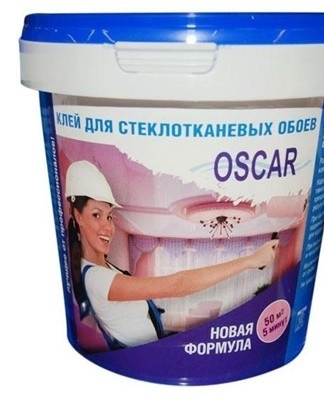
A common mistake for beginners is to use the wrong glue, suitable exclusively for paper wallpapers. The textured surface of fiberglass is dense and heavy, so the material will not stick to ordinary glue due to insufficient adhesive strength.
There are also modifications of fiberglass, for the installation of which special solutions are not required. On their back there is an adhesive layer, which is moistened with water.
Application of the mixture
A solution is applied to the prepared wall using a roller.Due to the large mass of the glass sheet, the adhesive layer for reliable fastening should have a thickness of about 1.5 mm. It is also important to make the layer even. Excess glue is carefully spread on the surface so that it serves as an additional primer for the subsequent application of paint. After forming a layer of glue, perform the following actions:
- Glass cloth wallpaper is applied to the prepared surface, and the front side is smoothed with a plastic spatula, moving with a herringbone pattern.
- From the upper and lower bases, the canvas is trimmed with a clerical knife.
- The next fiberglass wallpaper is glued to the seam. It is allowed to paint the surface no earlier than three days later.
Prerequisites for pasting
Conditions during finishing works practically do not differ from the standard procedure for wallpapering a room. In order for the fiberglass sheets to be firmly attached to the wall, through ventilation should be avoided and work should be carried out at room temperature. It is advisable that no direct ultraviolet rays fall on the walls with canvases.
How to calculate consumption
The standard consumption of the "Oscar" composition is 0.4-0.5 liters per square meter. To accurately determine the consumption of the substance, you need to measure the area on which you plan to carry out finishing work. It is recommended to purchase a solution with a small contingency margin. An insufficient amount of glue will cause the glass fabric wallpaper to not adhere firmly to the substrate and will shift over time.
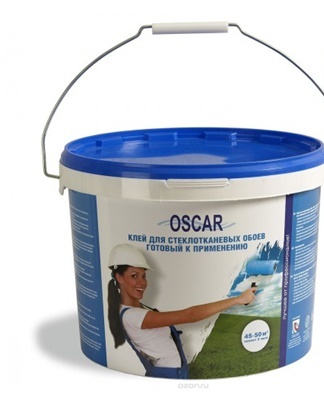
Analogs
In the construction market, you can find several types of adhesive solutions that have similar characteristics to Oscar brand products. The most popular and proven substitutes include the following options:
- Quelyd glue is a versatile, strong-acting solution. This option is used with all types of glass cloth wallpaper and glass cloth paint. During the drying process, the solution does not blacken or form mold due to the content of antiseptic additives. Quelyd provides a smooth tape slider for convenience when adjusting material placement. The composition goes on sale in cardboard packages with a capacity of 500 g.
- Solution "Optimist" - a household product for glass fabric wallpaper.The main advantages are relatively low cost, the absence of solvents in the composition, the formation of an invisible transparent film after drying. The composition is available in liquid form and is supplied in containers with a volume of 5 or 10 liters.
- Homakoll 202 is a universal water-dispersion composition for laying fiberglass and other types of high-mass structured wallpapers. Using Homakoll 202, you can fix the material on plastered surfaces, walls with a porous structure and other substrates. The solution is sold in ready-to-use liquid form in plastic buckets with a capacity of 10 liters. Consumption does not exceed 0.3 liters per square meter.
Additional tips and tricks
An important point when finishing fiberglass is the right equipment. During operation, fiberglass can crumble and its particles cause skin irritation. For greater safety, it is recommended to wear a long-sleeved jacket or a special protective suit. Hands are protected with a work cloth or rubber gloves.
Another recommendation is to quickly find the right and wrong side of the material. Having no experience with glass cloths, many spend time on this process. On the reels, the front is always inside and the back is marked with a gray or blue stripe.

